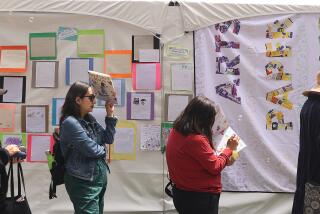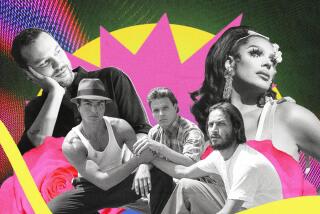Jane Hirshfield, Víctor Terán and haiku across cultures at L.A.’s Central Library
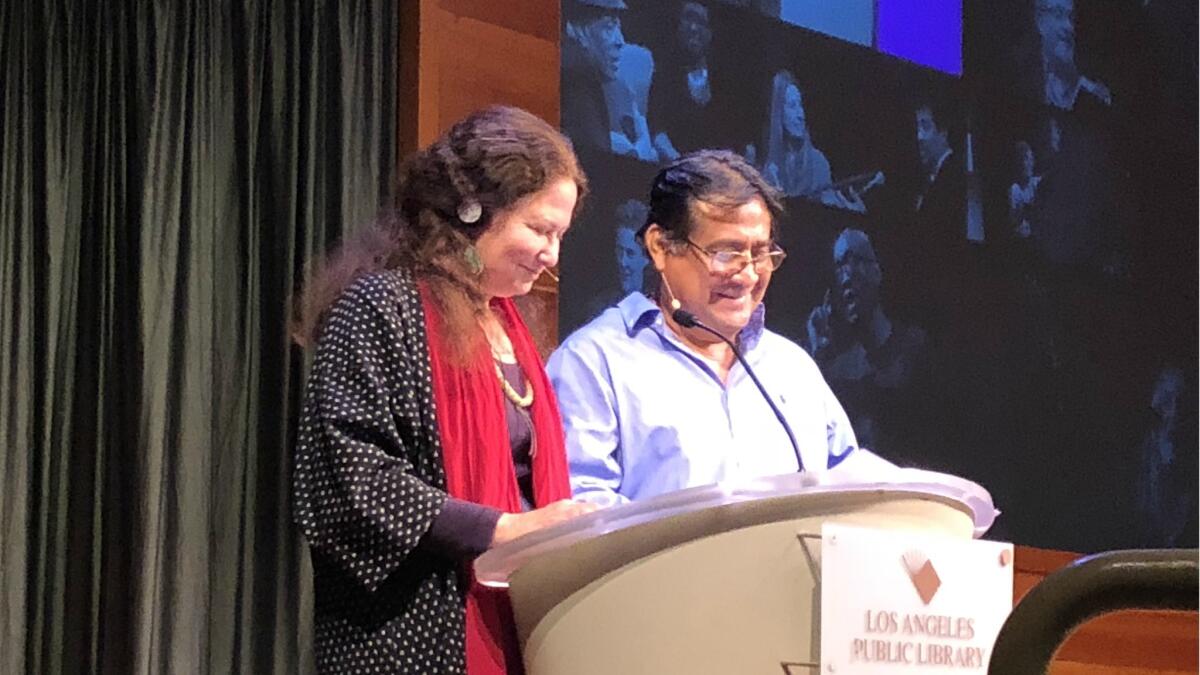
- Share via
Haiku is “an electric shock that wakens us to reality,” said poet Víctor Terán in Spanish from the stage of the Mark Taper Auditorium at ALOUD at the Los Angeles Central Library on Tuesday night. While he spoke, a woman’s voice whispered the English translation of his words into my ear via simultaneous interpretation device. It was like being bionically bilingual.
Terán, along with celebrated poet Jane Hirshfield and David Shook, founder of international poetry publisher Phoneme Media, had come to discuss haiku as written and recited in four languages: Japanese, English, Spanish and Zapotec.
Haiku “is a universal language of beauty and brevity,” the elements of life itself, said Hirshfield. To trace its reach across the globe is to witness “one heart in two cultures, in two languages, making the same discovery.”
The interpretation equipment, like a one-way walkie-talkie with a single headphone to hook over your ear, allowed audience members to hear the cadence of the Terán’s voice as well as absorb his meaning in real time. Spanish speakers in the audience could experience the same effect but in reverse, tuning into Hirshfield’s discussion as translated into their primary language.
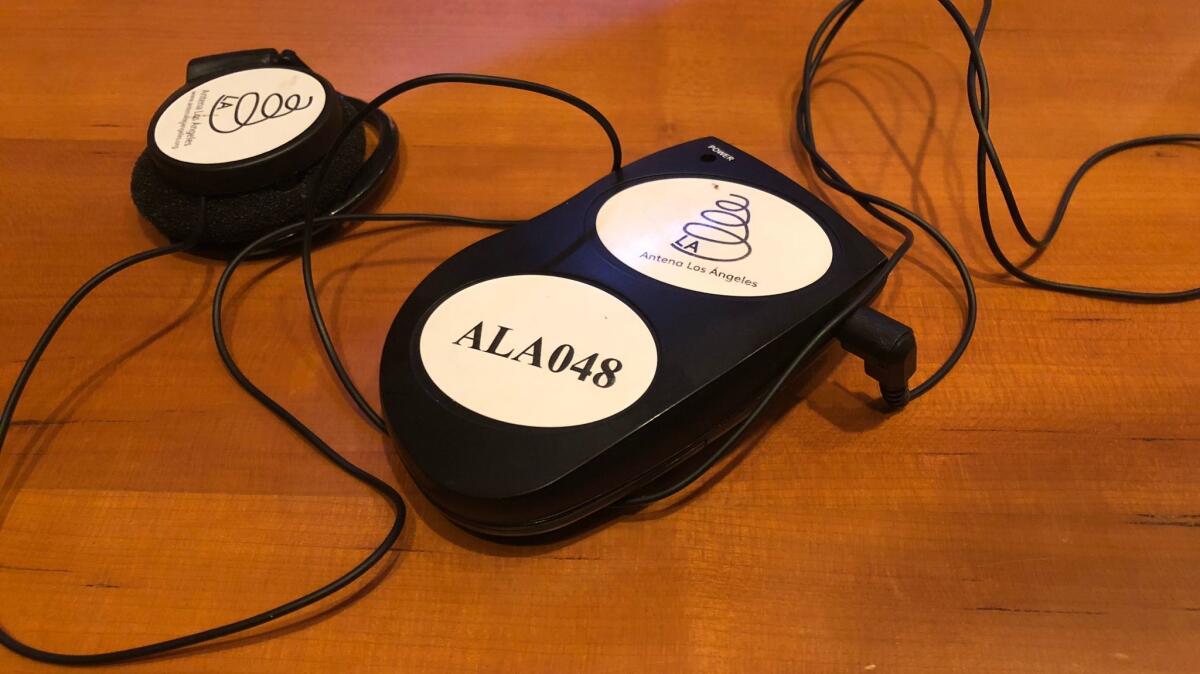
Some devices worked better than others. At times, a high whine of static broke out from within the full crowd. My own device lost reception over a certain volume, meaning that I only caught snippets of Terán’s portion of the conversation. No matter: “Don’t try to understand the poem,” he said, “just feel it.”
The poets read a combination of Japanese haiku and their own work. In any language, haiku exemplifies an art whose sum is more than its parts. Unlike the panel, the poets’ readings were translated sequentially: Terán spoke Hirshfield’s poems in Spanish and Zapotec after she read, and Shook shared his translations of Terán’s work into English.
Hirshfield co-translated Japanese poetry alongside a Japanese speaker in her 1990 book “The Ink Dark Moon,” now available from Penguin Vintage Classics. (“She had the language,” Hirshfield said of her co-translator. Of her own contribution, “I know no modest way to say this: I was a poet.”) Hirshfield ascribes to Octavio Paz’s philosophy of translation — “the same effect by different means” — rather than word-for-word accuracy.
“You swim through a threshold realm,” she said of the translation process, and eventually “you arrive on a shore, which is English.” Translation is collaborative; so too is the act of reading poetry. “It’s molecules of ink on a page until we bring it our own lives,” she said.
A few simple words, she explained, could capture the human experience. “On a branch, floating downriver, a cricket, singing,” she read, her own translation of a poem by Kobayashi Issa.
Terán echoed her sentiment: haiku “uses an image to enter, but behind an image it hides a whole world.”
After the event, the audience gathered in an outdoor courtyard for mescal and conversation. A line formed before the Haiku Guys, two men sitting at vintage typewriters offering free, personalized and on-demand Haiku for the audience — and Hirshfield.
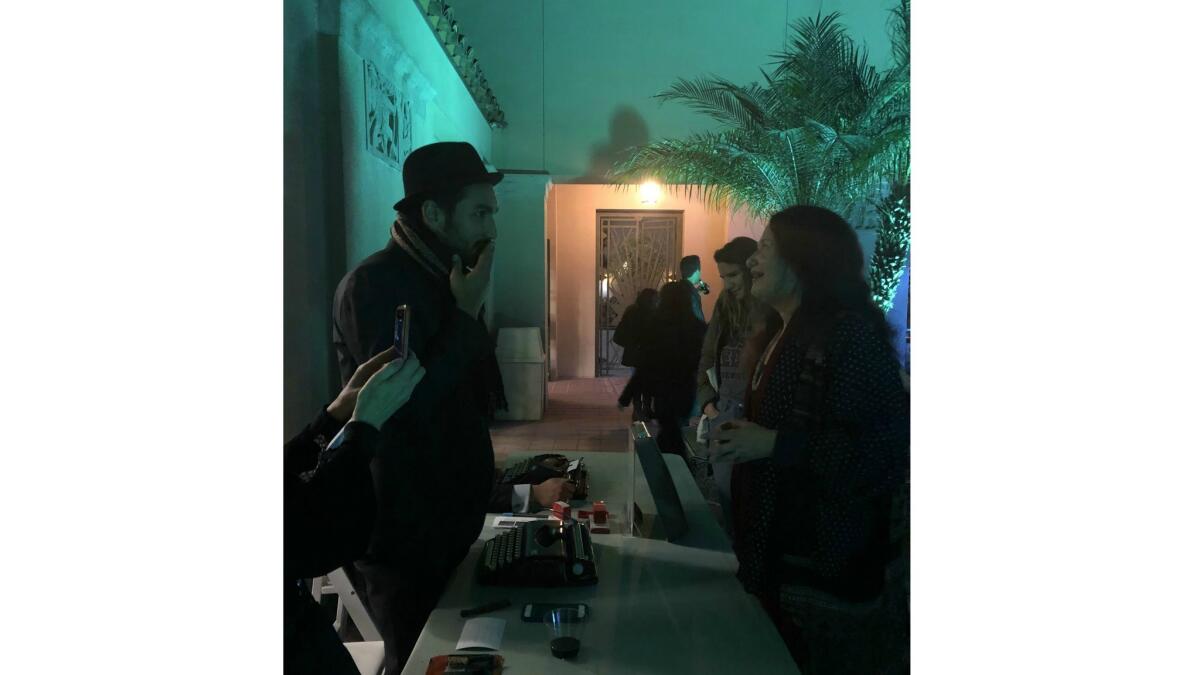
More to Read
Sign up for our Book Club newsletter
Get the latest news, events and more from the Los Angeles Times Book Club, and help us get L.A. reading and talking.
You may occasionally receive promotional content from the Los Angeles Times.

